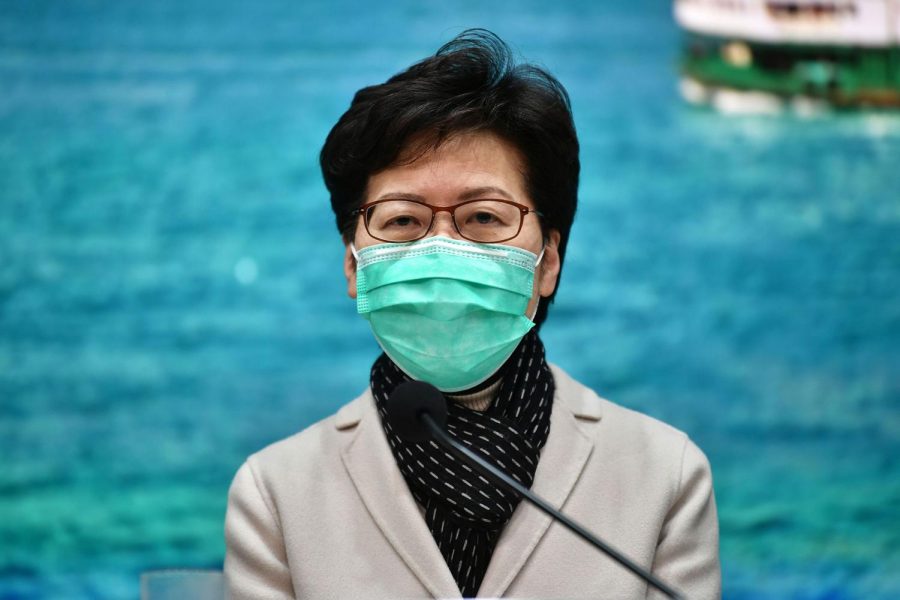COVID-19 Deepens Political Divide in Hong Kong
February 21, 2020
Earlier this month, a crowd of Hong Kong residents were filmed fighting over a cart of toilet paper rolls in a supermarket. The reason for their panic is because Hong Kong is preparing to shut its borders with mainland China in an effort to contain the COVID-19 outbreak. While the government has assured that this will not affect incoming foreign products, there have been rumors that basic necessities, such as toilet paper, will be cut off.
Millions of Hong Kong residents are now rushing to stores in a panic to stock up on medical and sanitation products. Face masks are sold out everywhere, and many have been waiting hours outside pharmacies just to buy hand sanitizer.
The people of Hong Kong have been demanding that the city close its borders with mainland China since the coronavirus was first detected back in January. Fear of contracting the virus has led residents, both in Hong Kong and China, to barricade themselves in the safety of their own homes.
As of now, there have been 64 confirmed cases of the virus in Hong Kong, 2 of which have resulted in death. In China, where the virus originated, the numbers are far worse, with at least 1,868 people having died so far.
As the virus continues to spread, the Hong Kong government is struggling to maintain order. A few precautions that have been implemented include closing schools until at least mid-March and having business employees work from home.
In hopes of preventing further contamination, over 7,000 health care workers—almost 10% of Hong Kong’s Hospital Authority—participated in a week-long union strike in early February. They demanded that the borders be closed and that the Hong Kong government establish a travel ban on visitors from mainland China.
Initially, Chief Executive Carrie Lam had argued against this, saying that the borders needed to remain open to allow Hong Kong residents to return home. She failed to mention that closing the border would also be a politically symbolic act that could offend Beijing, as it suggests localism, an ideology that focuses on preserving Hong Kong’s autonomy.
Lam’s hesitation led people to question where her priorities lie. From the perspective of the public, Lam’s “delay only seemed to be evidence that she was trying to appease Beijing, and that she was making decisions with politics in mind rather than public health necessities” (CNN).
During a press conference, Lam stated: “This is really the time for us to put aside our differences, to act together in order to overcome this public health crisis.”
However, the current public health crisis has only heightened tensions between pro- and anti-government groups.
Before the virus hit, citizens were already calling for Lam’s resignation due to the proposition of an extradition bill–which would have allowed criminal suspects in Hong Kong to be handed over to authorities in China. This sparked the 2019 Hong Kong protests, unifying the people of Hong Kong as they marched in the streets demanding for democratic reform. Though Lam did withdraw the bill, the protests caused many to lose their trust in government authorities, creating a new generation of organized resistance.
Now, the public has redirected their protest toward the outbreak, as they demand a unified response from a paralyzed government.
Photo courtesy of CNN.COM

